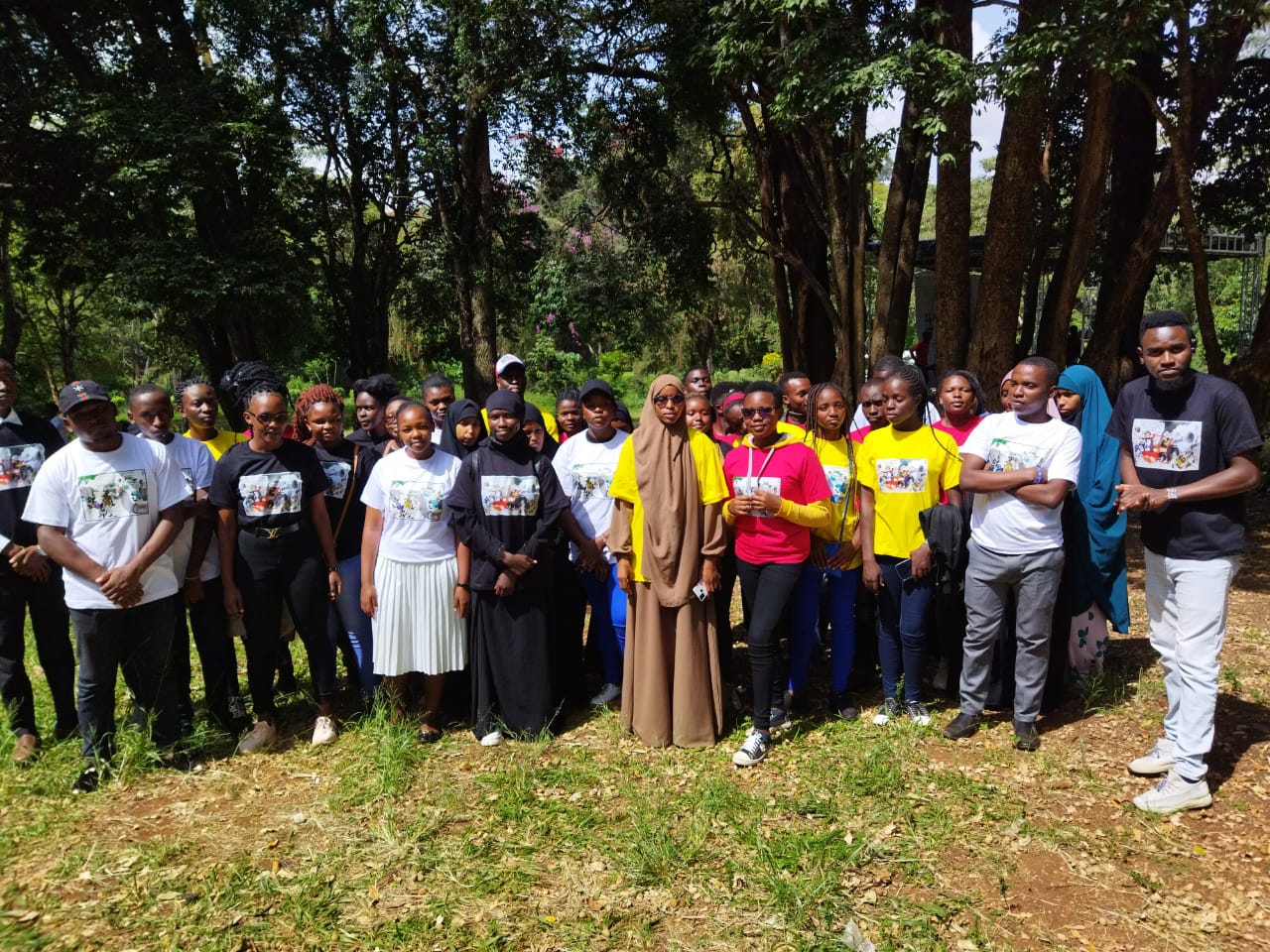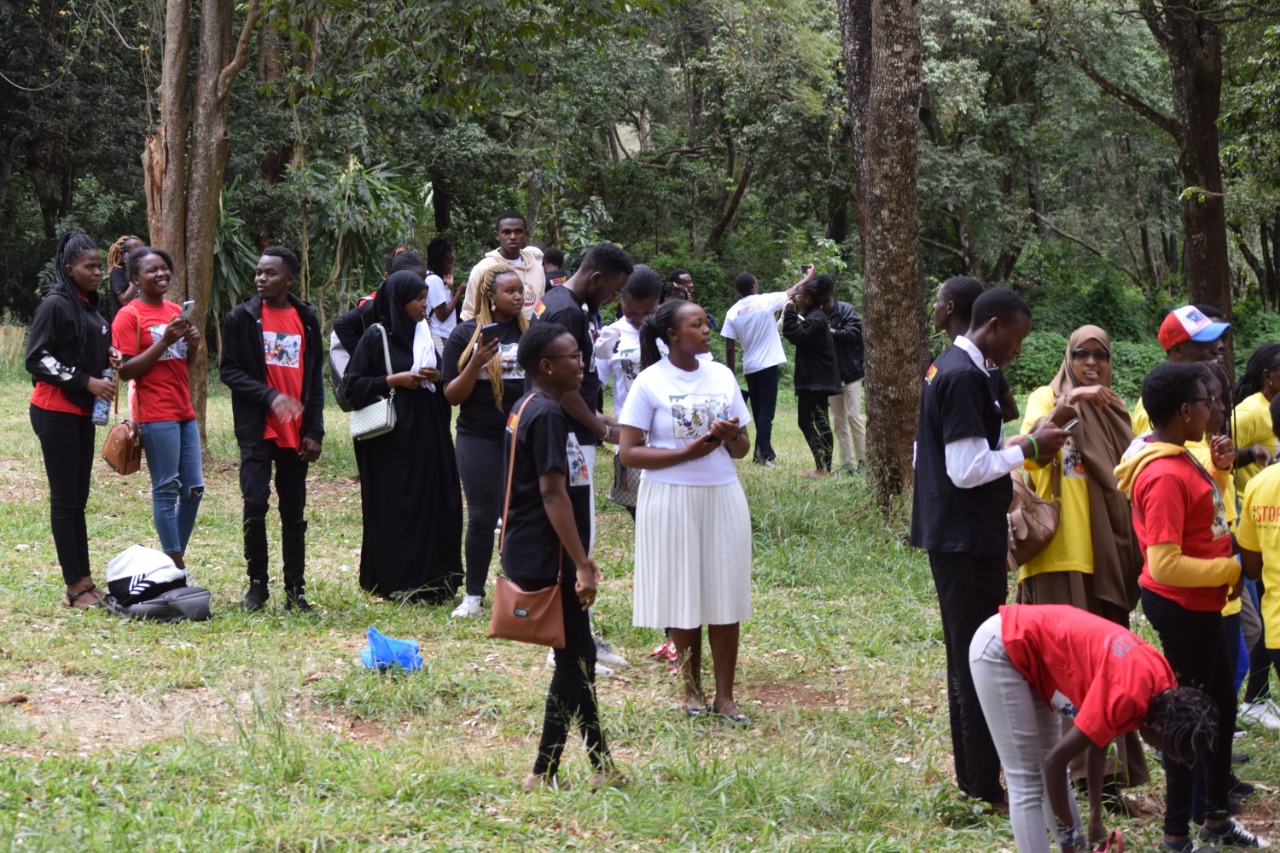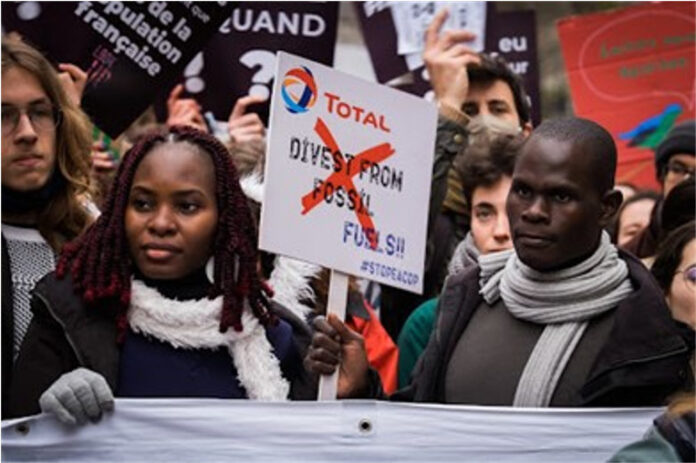NAIROBI, Kenya, May 25, 2022/ — As Africans commemorate Africa day on Wednesday, local artists joined climate activists in Uganda, Kenya, Tanzania and the Democratic Republic of Congo to mark it by holding concerts and actions during the week, to highlight the dangers of the proposed East African Crude Oil Pipeline (EACOP).
Climate activists who attended the concerts and actions, most of which coincided with the TotalEnergies Annual General Meeting, put the firm on the spot over its involvement in polluting oil and gas projects across the continent, such as EACOP.
Activists under the #StopEACOP campaign called on financial institutions not to back the project, which faces sustained opposition not only from community members in Uganda and Tanzania, but also from climate justice activists globally.
The planned pipeline has displaced thousands, affected livelihoods, threatens sensitive ecosystems, and endangers wildlife and the environment.
The planned actions included a march, delivery of a petition to Total Energies in Uganda and Tanzania, a concert in Goma, DRC on 25th May, as well as concerts set for the 27th of May in Nairobi, Kenya, and Dar es Salaam.
Landry Ninteretse, 350Africa.org Regional Director, said,
“The various concerts and actions organized this week across the continent demonstrate a popular rejection of fossil fuel projects by Africans. They have sent a clear message to TotalEnergies and its shareholders that the time has come to put an end to the looting, pollution, extractivism, and neo-colonialist practices that have for so long harmed millions of Africans. Projects like the East African Crude Oil Pipeline should therefore have no place in our region’s energy future as it will cause more harm than good to the communities and the environment.
Decisions being made at TotalEnergies AGM must reflect concrete plans to halt any planned fossil fuel projects and chart a path to support a just transition to clean energy to secure the continent’s energy security, while safeguarding the interests of communities. Rhetoric and greenwashing will lead us down a dark path of dependence on fossil fuels and destruction of our planet.”
Omar Elmawi, #StopEACOP coordinator said,
“The fact that numerous financial institutions have in the recent past increasingly committed not to fund EACOP is a testament to the harmful and irresponsible nature of this project, which puts people and the planet at risk. Fossil fuel companies would be incapable of developing such large fossil fuel infrastructure without the support of financial institutions.
The call is now on banks to commit to not supporting Total and its partners in their quest to build what is expected to be the longest heated crude oil pipeline in the world. Reports have indicated that as the world transitions from fossil fuels to clean energy, fossil fuel infrastructure will wind up as stranded assets.
The economically sound, socially and environmentally responsible move for financial institutions is to instead support the development of sustainable clean energy solutions which are plentiful and cost-effective.”
Edwin Mumbere from CECIC in Uganda said,
“Partners on the EACOP project have touted it as a project that will benefit the communities in Uganda and Tanzania. The situation cannot be further from the truth, as we have seen displacement of communities, human rights abuses, threats to their livelihoods as well as sensitive ecosystems linked to the pipeline.
What is increasingly clear is that the pipeline is bad for the people and the environment. Not only are we calling out TotalEnergies and its partners for carrying on with this project, we are also urging financial institutions not to fuel the climate crisis by supporting this project. Instead of banking on fossil fuels, focus should instead be on investing in renewable energy for the sake of energy security, economic sustainability, the wellbeing of people and the environment.”
Justin Mutabesha, climate activist based in Goma, DRC said,
“The recent IPCC report underscored the fact that urgent and deep emissions cuts are required to limit global warming below 1.5 degrees celsius, in order to avert even more catastrophic climate impacts. This is why we are standing in solidarity with our comrades in Uganda and Tanzania to oppose this disastrous project which would produce about 34 million tonnes of carbon dioxide annually. In the DRC, we opposed Total’s plans for oil exploration at Virunga National Park where they ceased operations in 2013.
We are calling on the firm and its partners to act responsibly and abandon the EACOP project. We further appeal to our government to stop the issuance of oil exploration licenses in Virunga National Park as well as halt recently announced plans to auction off new oil blocs for exploration, some of which are also located in sensitive ecosystems and threaten communities livelihoods.”
About the East Africa Crude Oil Pipeline (EACOP):
TotalEnergies and partners aim to construct a 1443-km crude oil pipeline and infrastructure to transport Uganda’s crude oil from Hoima in Uganda to Tanga in Tanzania.
If constructed, this would be the longest heated crude oil pipeline in the world, producing an estimated 34 million tonnes of carbon emissions annually. The project has already displaced thousands and threatens the water resources, livelihoods of millions of people in the Lake Victoria basin, as well as wildlife.
StopEACOP is a global campaign against the construction of EACOP. The campaign is led by an alliance of local groups and communities, African and global organizations.
The #StopEACOP Coalition has been calling for a stop to the proposed pipeline and associated oil fields at Tilenga and Kingfisher. The #StopEACOP campaign is gathering momentum, building pressure on the remaining supporters and financiers of the East African Crude Oil Pipeline.

















































